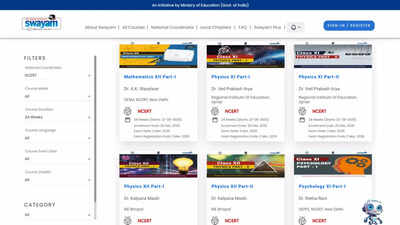New work permit rule for legal immigrants in the US: What actually changes

The US administration has introduced a new rule that ends the automatic extension of employment authorisation for certain legal immigrants. Previously, under the Biden administration, migrants could continue working legally after their work permit expired if they had filed a renewal application on time. From now on, all applicants will undergo fresh vetting and screening before their employment authorisation is extended.The change affects multiple groups, including spouses of H-1B and O-1 visa holders who rely on an Employment Authorisation Document (EAD) to work. Green card holders and visa holders such as H-1B, L-1 or O-1 do not need a work permit and are not directly impacted. The new rule comes into effect immediately, meaning applicants filing for renewal on or after October 30, 2025, will no longer benefit from automatic extensions.Who will be affected by the new ruleUS Citizenship and Immigration Services (USCIS) director Joseph Edlow said the agency, under President Trump’s orders, is emphasising the vetting of all applicants. “It’s a commonsense measure to ensure appropriate screening has been completed before an alien’s employment authorisation or documentation is extended,” Edlow said, as quoted by USCIS.The rule impacts H-4 visa holders, the spouses of H-1B workers, and certain categories of F-1 students under Optional Practical Training (OPT). Pending asylum applicants who receive an EAD will also be affected. The Department of Homeland Security (DHS) advised migrants to file renewal applications up to 180 days before expiry to avoid potential gaps in work authorisation.Reason for ending automatic extensionsThe DHS explained that ending automatic EAD extensions allows for more frequent background checks and fraud detection. “Reviewing an alien’s background more often will enable USCIS to deter fraud and detect aliens with potentially harmful intent so they can be processed for removal from the US,” DHS said in a statement. The rule provides limited exceptions, including extensions mandated by law or through Federal Register notices for Temporary Protected Status (TPS) work documentation.Implications for families and workersImmigration experts highlighted that the change could create gaps in employment for spouses reliant on EADs if processing times are delayed. David J Bier of the Cato Institute said in conversation with US media, “Another rule imposed immediately without notice and public comment periods because it is somehow an emergency to stop people from working solely because of government ineptitude.”Emily Neumann, an immigration attorney, told reporters that if vetting were truly the concern, USCIS could review applicants’ backgrounds at any time. “The agency’s own inefficient processing times created the need for automatic extensions in the first place,” Neumann said.USCIS emphasised that EADs automatically extended before October 30, 2025, will not be affected by the rule. Migrants are urged to submit renewals promptly to maintain uninterrupted work authorisation.Key changes under the new US work permit rule• Automatic extensions of Employment Authorisation Documents (EADs) for certain legal immigrants end from October 30, 2025.• Applicants filing renewal applications on or after this date will not be allowed to continue working automatically.• USCIS will conduct fresh vetting and background checks before approving any EAD renewal.• H-4 visa holders (spouses of H-1B workers) and some F-1 students under OPT are directly affected.• Green card holders and visa holders such as H-1B, L-1, or O-1 are not impacted.• Pending asylum applicants with EADs are also subject to the new vetting rule.• DHS advises migrants to file renewals up to 180 days before expiry to avoid work gaps.• Limited exceptions exist for extensions required by law or through Federal Register notices (e.g., TPS).• Previously auto-extended EADs before October 30, 2025, remain valid and unaffected.





